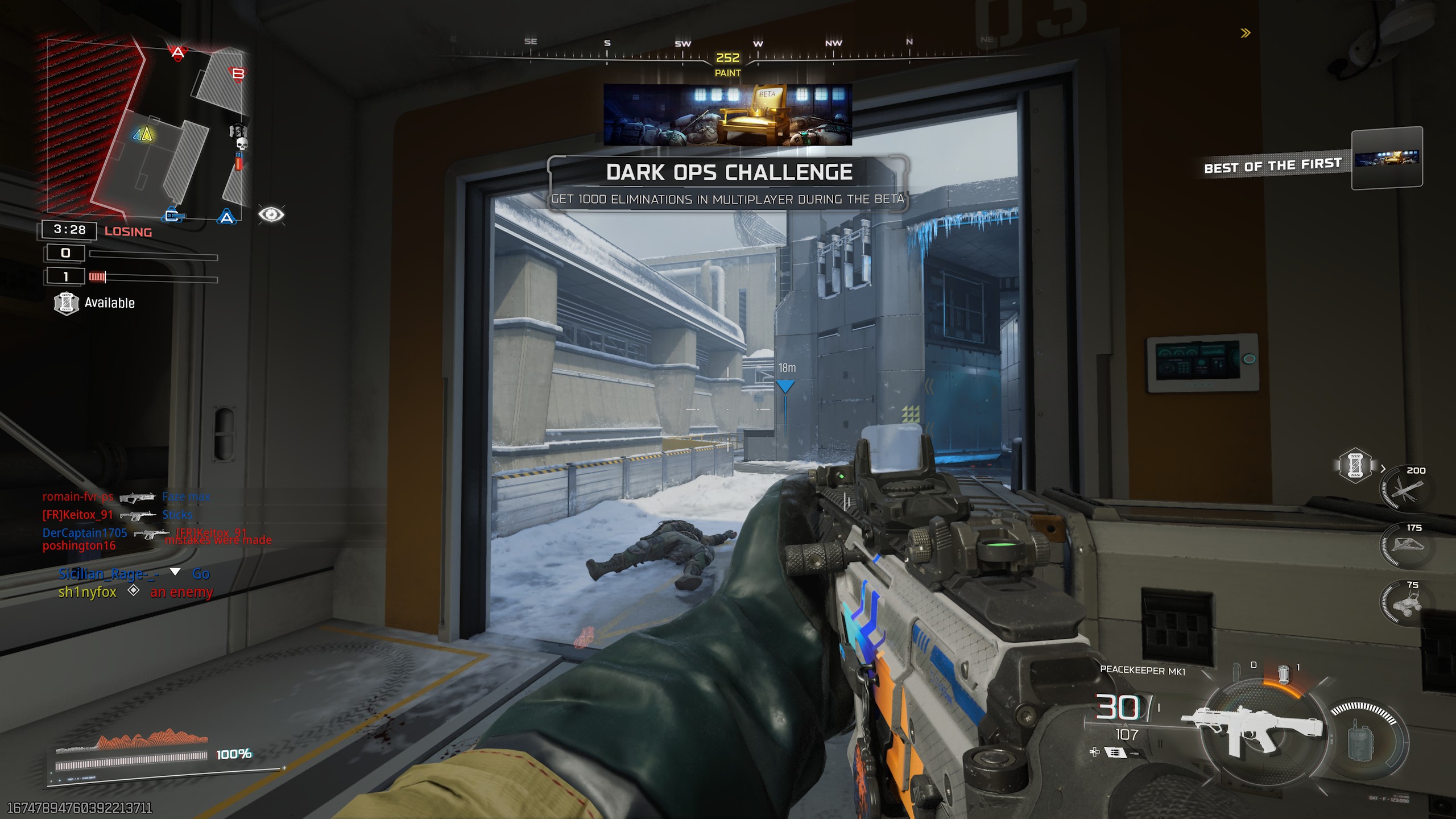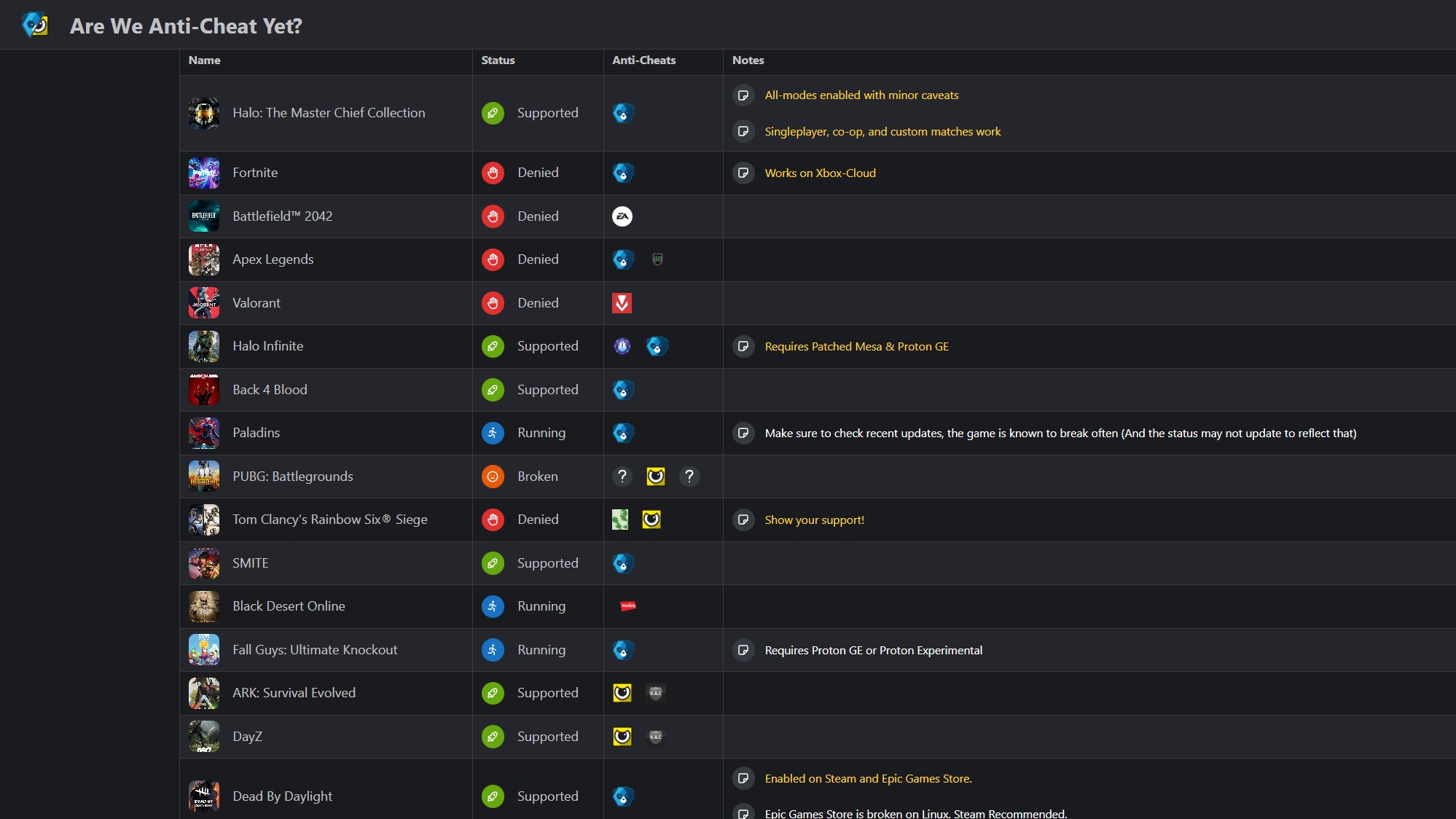
As a big Steam fan, I was so excited to hear about the Steam Machine making a comeback! And honestly, the Steam Deck has totally changed the game. It’s shown Valve has really figured things out this time, and most games run surprisingly well thanks to Proton. It’s not perfect, though – there are still a few frustrating issues that need fixing.
While SteamOS doesn’t completely block anti-cheat software, many popular multiplayer games still have issues with it. This is because these anti-cheat systems are designed to work with Windows and need access to its core operating system components.
SteamOS is built on a unique foundation – the Linux kernel. While it’s always possible things could change in the future, a shift doesn’t seem probable at the moment. Here’s a closer look at the situation.
Windows-based kernel level anti-cheat can’t just be made to work

The kernel is the central part of any operating system. Windows and SteamOS both have kernels, but they’re different: SteamOS uses the Linux kernel, which is freely available for anyone to use and modify, while the Windows kernel is proprietary and closed-source.
These two solutions are built for different operating systems and have very different underlying designs. An anti-cheat program designed to work deep within Windows wouldn’t be able to function the same way on Linux.
This LinkedIn article quickly explains the key differences and how these two things work.
Games made for Windows 11 can actually run on Linux. This isn’t done by changing the core of Linux itself, but through a tool called Proton. Proton essentially translates the game’s instructions – originally written for Windows – into a language Linux can understand. It does this using a combination of existing software called WINE, and special graphics libraries that convert DirectX (used in Windows) into Vulkan (which Linux uses).
It performs very effectively, but it can’t handle software that needs full administrative privileges within Windows.
If anyone can solve this, it’s Valve. However, their solution would probably require changes to SteamOS that wouldn’t work on most other Linux systems.
SOME anti-cheat has been made to work with Linux

Anti-cheat programs like Riot Vanguard, EA’s Javelin, and Activision’s Ricochet don’t work on SteamOS. However, some anti-cheat systems *do* function correctly. Valve has collaborated with developers to make compatible Linux versions of Easy Anti-Cheat and Battleye.
Rather than attempting to interpret system calls – a hugely complex task, and potentially impossible – these anti-cheat programs are designed specifically for Linux. However, they don’t integrate with the operating system as thoroughly as anti-cheat software that runs directly within the kernel.
Anti-cheat programs that function on Linux generally operate within the normal user space, rather than requiring access to the core of the operating system. While these solutions are helpful, they aren’t as powerful or capable as anti-cheat systems that run at the kernel level.
| Feature | Windows Execution (Native) | Proton Execution (Linux/Steam Deck) |
|---|---|---|
| Operating System | Windows 11 | Linux (Proton acts as the compatibility layer) |
| Anti-Cheat Access Level | Often requires kernel access for deep inspection of the OS. | Restricted to User-Space Mode only, with standard permissions. |
| Software Used | The anti-cheat is a Windows-native executable/driver | The anti-cheat is a Native Linux binary. |
| Mechanism | The anti-cheat driver loads directly into the Windows kernel to inspect the entire system. | The Linux anti-cheat runs alongside the game to inspect the game’s memory space and communicate with the server. |
| Developer Requirement | None. | Developer must enable specific “Linux/Proton” compatibility. |
The most demanding games now require access to your system’s core features. On Windows 11, games like the latest versions of Battlefield and Call of Duty are beginning to require TPM 2.0 and Secure Boot to run.
Our current solution functions, but it’s unlikely to be used by leading competitive games. Maintaining fairness is crucial, and an anti-cheat system must be effective to be worthwhile.
Ultimately, it’s up to the game developers. Even if an anti-cheat system is compatible with Linux, they have to choose to enable it. It’s not automatic, and we can’t force them to do so.
Destiny 2 offers a good case in point. While it employs Battleye anti-cheat, it’s not generally considered a highly competitive game—though players who enjoy player-versus-player combat might feel differently. This raises questions about why Battleye is used in the first place.
Bungie has chosen not to support Linux, including SteamOS, which prevents the game from running on those systems. As a result, it’s currently unplayable on Linux.
So how do you find out if a game has a working anti-cheat on SteamOS?

Wondering if your games will run on a Steam Deck, other SteamOS handheld, or a Steam Machine? Here’s how to check compatibility.
There are three resources I recommend:
- ProtonDB
- Steam’s own SteamOS compatibility checks
- Are We Anti-Cheat Yet?
Steam shows how well each game works with your system, and also indicates if it’s compatible with the SteamOS handheld. They’re planning to add similar information for the more powerful Steam Machine, detailing its compatibility separately.
If it’s playable or verified, you can play. If it’s not, then you might not be able to.
For even more help, check out two great community resources. ProtonDB is especially useful – you can see if games will work with Steam Play, and also find specific advice to help them run as smoothly as possible.
AreWeAntiCheatYet? is a website that helps you quickly check if your favorite game is compatible with various anti-cheat systems.
SteamOS generally runs smoothly if you mostly play single-player games. However, if you encounter problems, the solution usually involves either streaming games from the cloud or using Windows 11.
Read More
- Darkwood Trunk Location in Hytale
- Best Controller Settings for ARC Raiders
- Ashes of Creation Rogue Guide for Beginners
- Hytale: Upgrade All Workbenches to Max Level, Materials Guide
- Daredevil Is Entering a New Era With a Chilling New Villain (And We Have A First Look) (Exclusive)
- So Long, Anthem: EA’s Biggest Flop Says Goodbye
- 7 Announcements We’re Dying to See at Dragon Ball’s Genki Dama Festival This Month
- We’ll Never Get Another Star Wars Show Like Andor, But Not Because of Dave Filoni
- Katy Perry Shares Holiday Pics With Justin Trudeau & Ex Orlando Bloom
- RHOBH’s Jennifer Tilly Reacts to Sutton Stracke “Snapping” at Her
2025-11-12 21:50